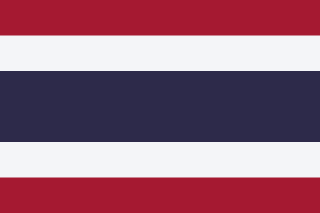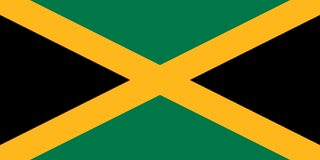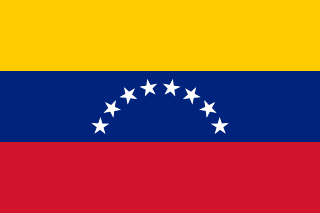The 1984 Winter Olympics, officially known as the XIV Olympic Winter Games, was a winter multi-sport event held in Sarajevo, Yugoslavia, from 8 to 19 February 1984. A total of 1,272 athletes representing 49 National Olympic Committees (NOCs) participated in 39 events from 10 different sports and disciplines. First time NOCs to enter were Egypt, Monaco, Puerto Rico, Senegal, and British Virgin Islands.

Australia has sent athletes to every Summer Olympic Games, as well as every Winter Olympics except 1924–32 and 1948. In 1908 and 1912 Australia competed with New Zealand under the name Australasia.

Kingdom of Thailand first participated at the Olympic Games in 1952, and has sent athletes to compete in every Summer Olympic Games since then, except when they participated in the US-led boycott of the 1980 Summer Olympics. Thailand has also participated in the Winter Olympic Games since 2002.

India first participated at the Olympic Games in 1900, becoming the first Asian nation to do so. Norman Pritchard represented the country and won two medals, both silver, in athletics. The nation first sent a team to the Summer Olympic Games in 1920 and has participated in every Summer Games since then. India has competed at several Winter Olympic Games after its debut in 1964.

The all-time medal table for all Olympic Games from 1896 to 2024, including Summer Olympic Games, Winter Olympic Games, and a combined total of both, is tabulated below. These Olympic medal counts do not include the 1906 Intercalated Games which are no longer recognized by the International Olympic Committee (IOC) as official Games. The IOC itself does not publish all-time tables, and publishes unofficial tables only per single Games. This table was thus compiled by adding up single entries from the IOC database.

Argentina participated at the Olympic Games for the first time in 1900. It has participated at all subsequent Summer Olympics except in 1904, 1912, and the nation boycotted the Moscow Olympics due to its support for the United States in 1980. It participated at the Winter Olympics in 1928, 1948, 1952 and continuously since 1960.

Several tropical nations have participated in the Winter Olympics despite not having the climate for winter sports. Partly because of that, their entries are a subject of human interest stories during the Games. No tropical nation has ever won a Winter Olympic medal.

Brazil first participated at the Olympic Games in 1920, after missing the previous five Summer editions. The country has sent athletes to compete in every Summer Olympic Games since then, except for the 1928 Games. As of 2024, Brazilian athletes have won a total of 170 medals in 18 different Summer sports.

Senegal competed in the 1984 Winter Olympics in Sarajevo, Yugoslavia. The country's participation at the Games marked its Winter Olympics debut, although it had competed in the Summer Olympics since 1964. The delegation consisted of a single alpine skier, Lamine Guèye, who did not win any medals. This was the first time a black African competed at the Winter Olympics, and Guèye would later return to the Winter Games twice more in 1992 and 1994.

Algeria first competed at the Olympic Games in 1964, and has participated in every Summer Olympic Games since then, except for the boycotted 1976 Summer Olympics. Algeria has also sent athletes to the Winter Olympic Games on three occasions. The National Olympic Committee for Algeria is the Comité Olympique Algérien, founded in 1963.

The Philippines has competed in every edition of the Summer Olympic Games since its debut in the 1924 edition, except when they participated in the American-led boycott of the 1980 Summer Olympics. Filipino athletes have also competed at the Winter Olympic Games on six occasions since 1972.

Jamaica first participated at the Olympic Games in 1948, and has sent athletes to compete in every Summer Olympic Games since then. In 1960, Jamaican athletes competed as part of the West Indies Federation team. Jamaica has also participated in the Winter Olympic Games since 1988, with the Jamaica national bobsleigh team achieving some fame.

The Netherlands first sent athletes to the Olympic Games in 1900, and has participated in almost all Games since then with the exception of 1904 Summer Olympics in St. Louis. The Netherlands boycotted the 1956 Summer Olympics in Melbourne as a protest against the Soviet invasion in Hungary just a few weeks before the beginning of the Games; however, one Dutch rider competed in the 1956 equestrian events, held in Stockholm a few months before the rest of the Games.

Zimbabwe participated for the first time at the Olympic Games under its current name in 1980, and has sent athletes to compete in every Summer Olympic Games since then. Previously, it competed at the Games under the name Rhodesia in 1928, 1960 and 1964. The 2014 Winter Olympics in Sochi marked Zimbabwe's first participation at the Winter Olympic Games, with Luke Steyn, the Zimbabwean born athlete participating in alpine skiing.

Venezuela first participated at the Olympic Games in 1948, and has sent athletes to compete in every Summer Olympic Games since then. Venezuela has also participated in the Winter Olympic Games since 1998. The Venezuelan Olympic Committee (COV) was created in 1935.

Fiji made its Olympic Games debut at the 1956 Summer Games. It has competed at fourteen Summer Games and three Winter Games. Its athletes have taken part in archery, athletics, boxing, football, judo, sailing, shooting, swimming, weightlifting and rugby sevens.

Tajikistan first participated at the Olympic Games as an independent nation in 1996, and has sent athletes to compete in every Summer Olympic Games since then. The nation has also competed at the Winter Olympics since 2002. To date, Andrei Drygin is one of two people ever to have represented Tajikistan at the Winter Olympic Games, being his country's sole competitor in 2002, 2006, and 2010.

Somalia first participated at the Olympic Games at the 1972 Summer Games in Munich, West Germany; the Somali Olympic Committee being recognised by the International Olympic Committee shortly prior. The nation has sent athletes to compete in most Summer Olympic Games since then, boycotting in 1976 due to the inclusion of New Zealand, and in 1980 when it joined with the American-led boycott. It also did not compete in 1992 due to the ongoing effects of a famine. Somalia entered their largest contingent of athletes at the 1984 Summer Olympics, a total of seven.
Tofiri Kibuuka is an Ugandan-born Norwegian athlete. He has participated in both the Winter Paralympic Games, in cross-country skiing and in the Summer Paralympic Games, in mid- and long-distance running. Active from 1976 to 2000, he won five Paralympic silver medals, and one bronze.

Jamaica competed at the 2012 Summer Olympics in London, from 27 July to 12 August 2012. This was Jamaica's most successful performance in the Summer Olympics; it was approximately the same size from the previous games with a delegation of 50 athletes, and its athletes broke the nation's record for the number of medals, won in a single games. Jamaica's participation in London marked its sixteenth appearance as an independent nation, although it had previously competed in four other games as a British colony, and as part of the West Indies Federation. Usain Bolt became the nation's greatest highlight of these games, having won three of Jamaica's four gold medals at London, and breaking an Olympic and world record in two of the three events in which he participated. Because of his repeated successes for the most medals and records, Bolt became Jamaica's first male flag bearer at the opening ceremony since 1984.

















